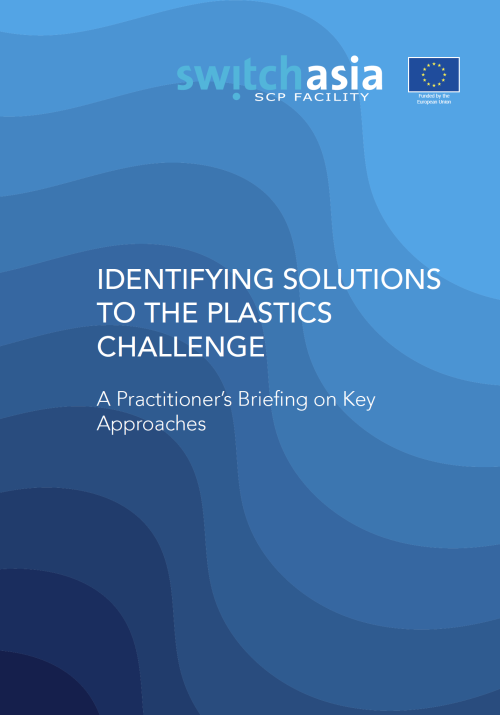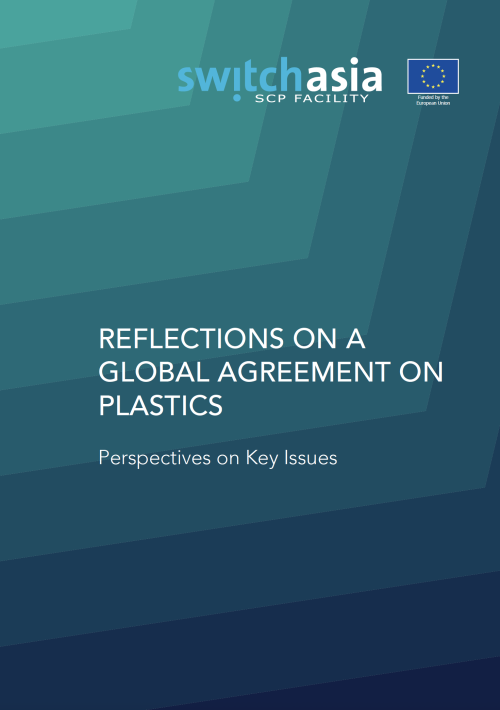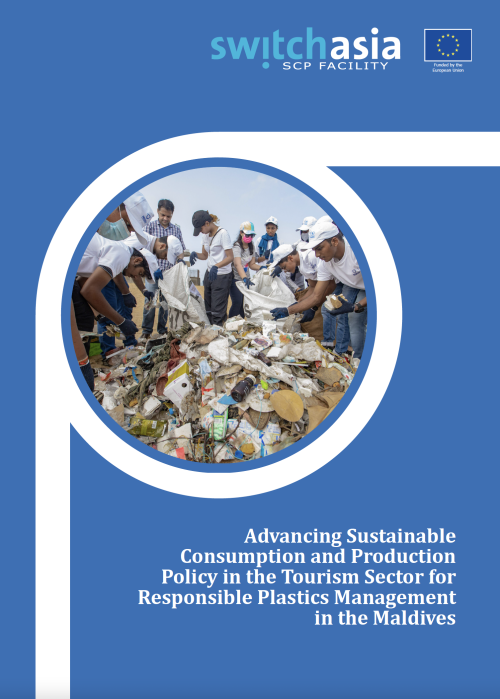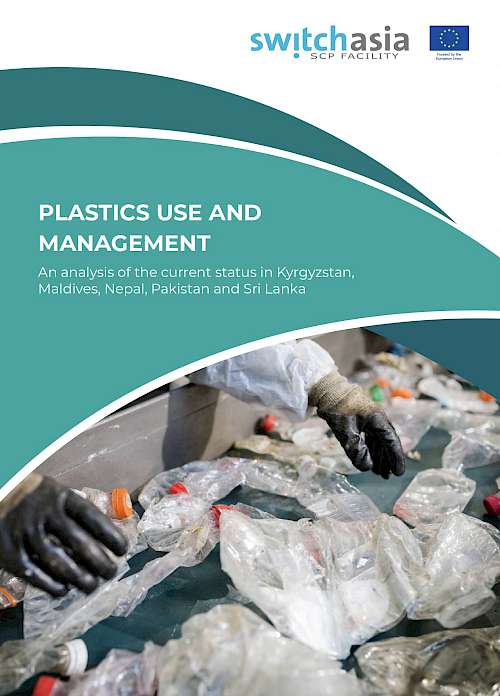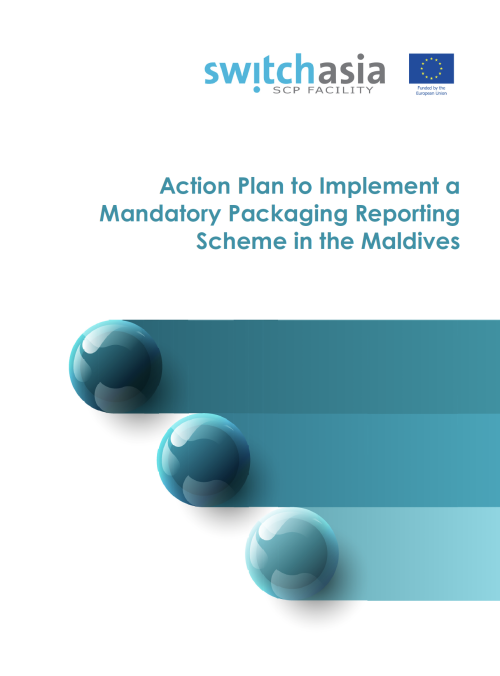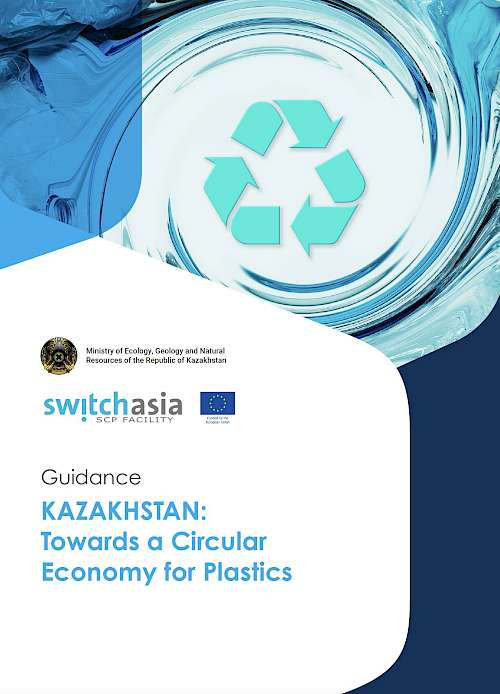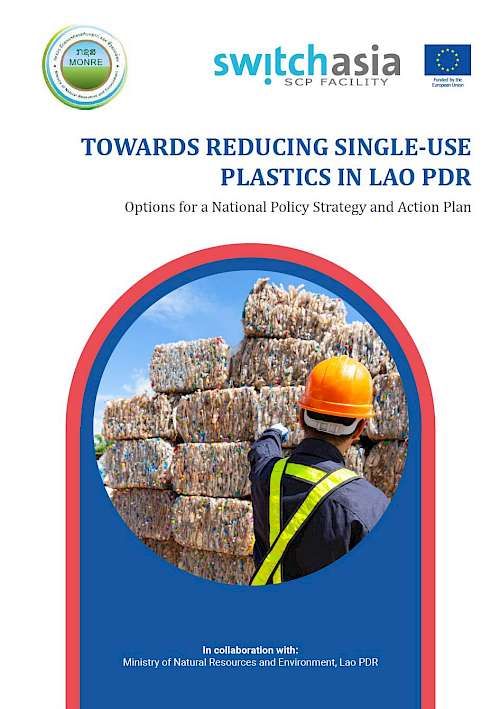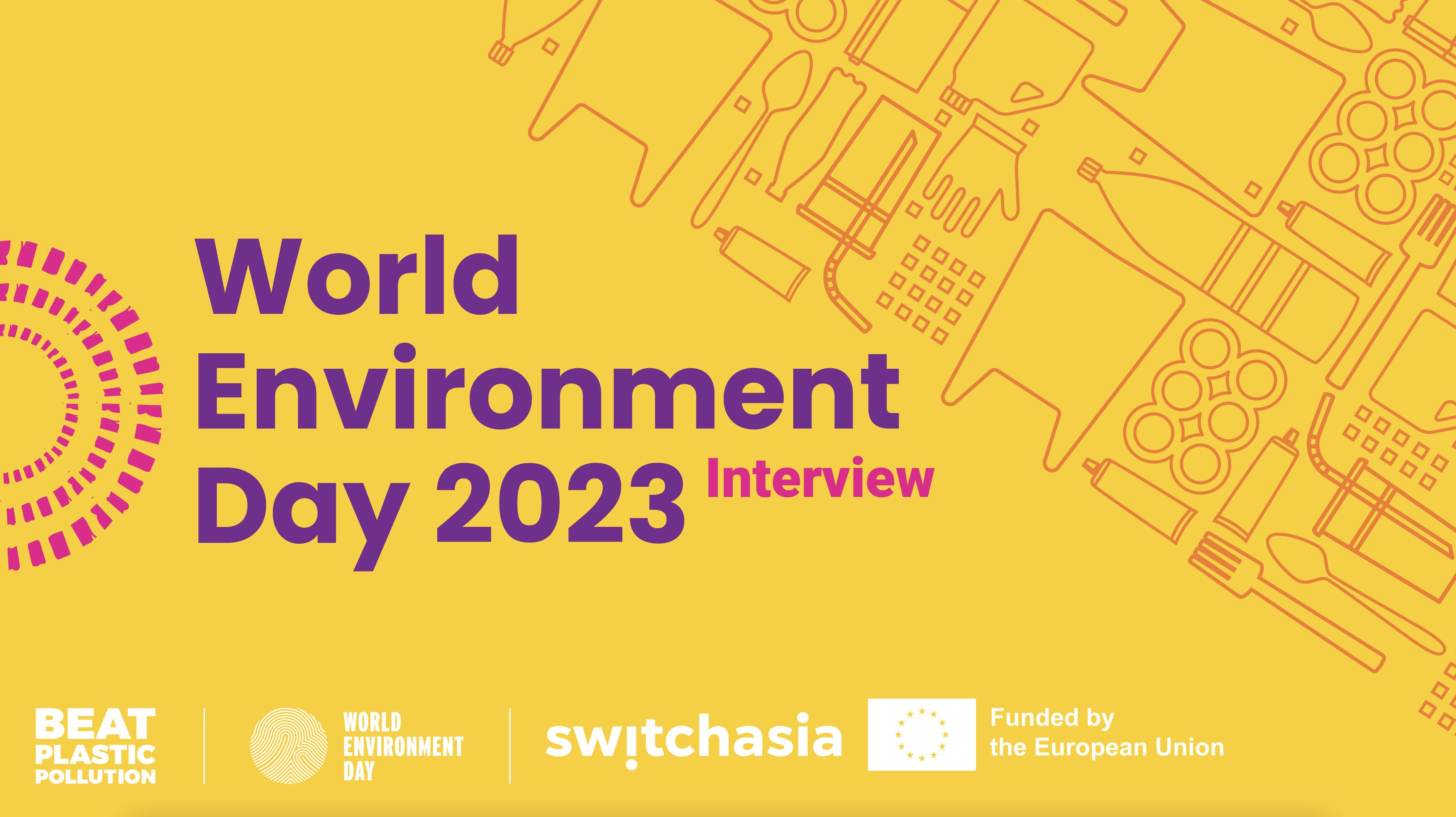
Current global plastic production and consumption patterns and their growth trajectory are unsustainable. A systemic shift to circularity is required to reduce environmental and human health impacts.
In 2022, more than 190 states have jointly committed themselves to develop a binding agreement on plastics pollution with the goal of concluding negotiations by the end of 2024. An Intergovernmental Negotiating Committee (INC) has been tasked with negotiating this. Five distinct rounds of negotiation are foreseen, where one has already taken place in November 2022 and the second round is set from 29 May to 2 June 2023 in Paris, France.
In this context, the SWITCH-Asia PSC has conducted an interview with Dr. Zinaida Fadeeva, Team Leader.

What is being negotiated this week in Paris, and why is it important?
We have to be clear what is negotiated at INC: the urgent need that governments take responsibility for combating plastics pollution through legally binding measures at the global level. After decades of waiting on self-regulation of plastics producers, voluntary declarations and commitments, and bottom-up initiatives, it is now apparent that this approach simply does neither effectively nor sufficiently reduce plastic pollution, let alone ending it. What is also often ignored despite its importance is that plastics are a fossil-based material, most often sourced from oil. It is highly lucrative, and companies have continued to build up their polymer producing capacity in the past decade. Annually, they churn out more than 30 kg of plastics per capita globally. An incredible amount! We now cannot even keep the commitments of the Paris Agreement on climate if we don’t tackle plastics swiftly and comprehensively.
What do you think is of highest concern to the SWITCH-Asia target countries in the Asian region?
Asia is a highly diverse region, encompassing fossil fuel producing and polymer manufacturing countries, as well as nations that import plastic products. Each of these nations has its unique concerns when it comes to plastics. For countries with fossil producing and polymer manufacturing industries, production of plastics is currently very compelling, largely because the environmental cost and health impacts of plastics is not factored into its market price. Therefore, the plastics industry is growing immensely in the region, pushing towards a shift from traditional packaging methods, such as banana leaves or ceramic, to plastics. Major, global companies are undermining local innovation, food production and related business. Fossil and plastics industries often underscore the potential job losses if the plastics industry is curtailed. But we need to also consider potential job creation in alternatives, both in terms of food vendors as well as return-and-refill schemes or compostable packaging production.
Countries that solely import plastic products might find it easier to implement regulations limiting plastic use, as they are less tied to the economic benefits of plastic production and less targeted by lobbying. Additionally, and interlinked, the major challenges related to plastic waste management and changing consumer habits adds to the complexity of the problem they also face challenges such as managing plastic waste and changing consumer habits.
It is important for Asian countries to rethink the current plastics narrative. One direction of actions is shifting the focus to plastic alternatives towards more sustainable packaging practices. Another critical path is redesigning plastic materials, making them more suitable for return into production and consumption cycles – very much in line with circular economy concept. This would require strategies well-articulated through design for the environment methodologies.
What is the most important entry point for solving the plastics challenge?
We need measures that effectively reduce plastics production and redesign plastic materials which would make reuse and recycling the only economically feasible option. This will reduce incineration and disposal on landfills. We must do it fast. Globally, 90% of plastic is not recycled and is either burnt, dumped, or otherwise mismanaged, with negative effects on the environment. Waste collection system remains critically important for plastics management. In Asia and many other regions, the plastic waste management and recycling capacities are not at all sufficient to deal with current plastic waste. Even if they are significantly expanded they will not suffice given the projected growth of plastic production. It is important to take stock of the problem now, and quickly change the trajectory.
One direction of action is to “close the back door” by minimising inflow of so-called “problematic and avoidable” plastic, i.e. materials that are difficult to collect and impossible to put into use again. That is done by governmental bans, phase-outs and caps. Governments need to price-in the negative environmental and health effects of plastics and thus hold plastics producers accountable for the environmental and health costs of their products. The second critical direction is to encourage circular solutions that would keep plastics within the production and consumption system. This can be done by environmental legislation and it also means setting up market frameworks and incentives in a way that makes collection and recycling the preferred economical option for plastics producers and distributors. By making circularity profitable, this will also trigger material and systems innovation. Importantly, in support of this, programmes and policies encouraging innovations need to be developed, and stimulus needs to be generated through governmental procurement practices and financial schemes.
We have to be clear – as long as these changes are not made, the costs of plastics pollution are borne by societies. Polluters are not paying, and this in turn is akin to fossil fuel subsidies. In the end, this is an international governance issue, as the States have committed to phasing out “wasteful use” subsidies as part of the SDGs and the Paris Agreement. In this way, it is high time that the States discuss the wherewithal at the INCs for the plastics agreement.
What is important to consider when proposing solutions to the “plastics challenge”?
We first need to be precise which part of the challenge we talk about. In general, we need to be aware of the diversity of plastics and plastic products. They are nowadays used and applied everywhere in modern life and across all economic sectors. They include visible plastics and plastic products, such as packaging, take-away containers, medical supplies, car parts, or construction materials, as well as less visible plastics for example as packaging material within value chains and in clothing, textiles, as well as microplastics in cosmetics, fertilizers, pesticides, or cleaning products.
There are problematic and avoidable plastic products, in particular single-use and short-lived plastic products for which alternatives and substitutes already exist, such as single-use plastic bags, plastic straws or plastic cutlery, and use of microplastics. These should be targeted as quickly as possible. Additionally, there are problematic plastics and plastic products for which currently no alternatives or substitutes are available at scale, such as medical equipment and supplies, or components for electronic devices. Here, we need urgent actions to explore suitable alternatives and substitutes.
When tackling plastics, we also need to consider the whole range of thousands of different chemicals that are added to plastics and plastic products. Many have harmful environmental and health effects. Obviously, we therefore need to adopt a comprehensive approach and clearly define priorities when tackling plastics. Last but not least, let us remember about the informal sector, that plays significant role in the plastic waste management of many countries. They are to become a part of a formal economic system and their work has to be made safer, more efficient, and bring more economic opportunities.
At the INC, a lot of technical language is used. Which term do you think needs an explanation?
Technical language is an important instrument to make sure that terminology is understood by all negotiating parties in the same way. It is important to clarify them in a process of negotiations and during accompanying processes to facilitate difficult decision-making. For example, the term "upstream" that is used in the context of this negotiation can create different impressions for different people and, therefore impact negotiations already from outset. Profits from plastic proliferation are not limited to a single 'stream' but are distributed among a large network of companies, including polymer producers, plastic product manufacturers, brands and consumer goods giants like Nestlé and Coca-Cola, and distributors. We need to address them one-by-one to achieve change, as the costs of changing the current status are borne differently by each of these players. Furthermore, the term "upstream," seems to refer to a natural, almost inevitable process, while we must be clear: plastics is entirely a product of human industry.
You are a proponent of systems thinking. In which way do you think this is needed in the context of plastics?
To effectively reduce plastics use, for example, in food packaging, a systems thinking approach is indispensable. This perspective recognizes that plastics was not the material for food packaging even thirty years ago. It was replaced over time and new “convenience” was created that enabled plastic-based habits and systems to form. The trend of ready-to-eat meals was facilitated by plastic packaging. Similarly, the globalised food trade now depends on plastics for transport and shelf-life extension. We need solutions that address these systemic dependencies, for example by reducing reliance on packaging through local food sourcing or bulk-buying. We also need to acknowledge that some habits facilitated by plastics are neither healthy nor important and are actually harmful in many ways, including by enabling a replacement of locally sourced foods or by creating the “fast fashion” industry. Hence, a shift away from plastics necessitates a holistic approach, redesigning the systems that created this dependency in the first place. An important starting point for this shift is to make the material reflect the environmental and health impacts through higher prices or taxes. Because let’s be clear – as long as this is not done, we cannot expect to see change.
Learn more about our work in this field, visit our Resource library
